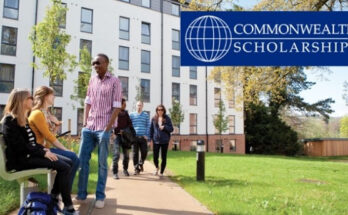The Fulbright Scholarship stands tall as one of the most prestigious international exchange programs worldwide. Instituted by the U.S. government, it has continually promoted mutual understanding between citizens of the U.S. and those of other countries.
Through its diverse programs tailored for students, scholars, and professionals, it fosters significant global interactions and knowledge exchange.
Understanding the Fulbright Legacy
The Fulbright Scholarship was birthed out of a vision Senator J. William Fulbright harbored. His belief in the transformative power of international educational exchanges as tools for promoting peace and mutual respect led to the inception of this scholarship in 1946.
What Makes the Fulbright Program Unique?
- Cultural Exchange at its Core: At its heart, the Fulbright program isn’t merely about obtaining a degree or mastering a subject. It emphasizes mutual understanding, encouraging scholars to immerse themselves in local cultures and bring back enriched worldviews to their home countries.
- Extensive Reach: With partnerships in over 160 countries, the Fulbright program has a truly global reach. Its alumni community is over 390,000 strong, with many going on to become leaders in their respective fields.
- Diverse Opportunities: From students and young professionals to teachers and researchers, the program offers a range of scholarships tailored to diverse needs and fields of study.
Eligibility Criteria for International Students
- Academic Excellence: A consistently good academic record is essential. Most programs require applicants to have completed an undergraduate degree or its equivalent.
- Proficiency in English: Depending on the host institution, students may need to provide TOEFL or IELTS scores to demonstrate English proficiency.
- Field of Study: While the Fulbright program encompasses a vast range of subjects, it’s vital to ensure that your chosen field aligns with the scholarship’s objectives.
- Clear Purpose: Having a well-defined research or study plan, highlighting its relevance and potential impact, can set you apart.
The Fulbright Application Process
- Research and Preparation: Understand the specific requirements of the program you’re interested in. Each country may have different prerequisites and deadlines.
- Documentation: This typically includes academic transcripts, recommendation letters, a statement of purpose, and any other relevant certifications.
- Interviews: Shortlisted candidates usually undergo an interview process. This helps assess their suitability for the scholarship and the program they’ve chosen.
- Await the Decision: After rigorous scrutiny, successful candidates are notified of their selection.
A Glimpse into the Fulbright Experience
Embarking on the Fulbright journey promises more than academic enrichment. It’s about establishing connections, broadening horizons, and imbibing diverse cultures. The program encourages scholars to participate in community activities, seminars, and workshops, furthering the mission of mutual respect and understanding.
Benefits of the Fulbright Scholarship
- Comprehensive Financial Support: From tuition fees to living expenses, the scholarship covers it all. Travel allowances are also typically provided.
- Access to Exclusive Seminars: Scholars often get the opportunity to attend special seminars and enrichment activities.
- Global Community: Joining the Fulbright family means being part of a vast network of change-makers and thought leaders.
Closing Thoughts
The Fulbright Scholarship for International Students is more than a mere financial grant. It’s a stepping stone to global leadership, a platform for cultural exchange, and a conduit for lasting international relations. As an aspiring global citizen, the experience, knowledge, and perspectives you’ll gain through this scholarship are unparalleled.



